20 in their 20s
These young alumni have a zillion different dreams, but one thing in common — being a Rice grad is never far from their hearts and minds.
Ranging in class years from 2010 to 2020, each is clearing a particular path — via music, public health, medicine, architecture, journalism, law, social justice advocacy, visual arts, engineering or biology — toward a better, more just world. And they are doing all these things with energy and imagination. In an imperfect world, this is perfect vision indeed.
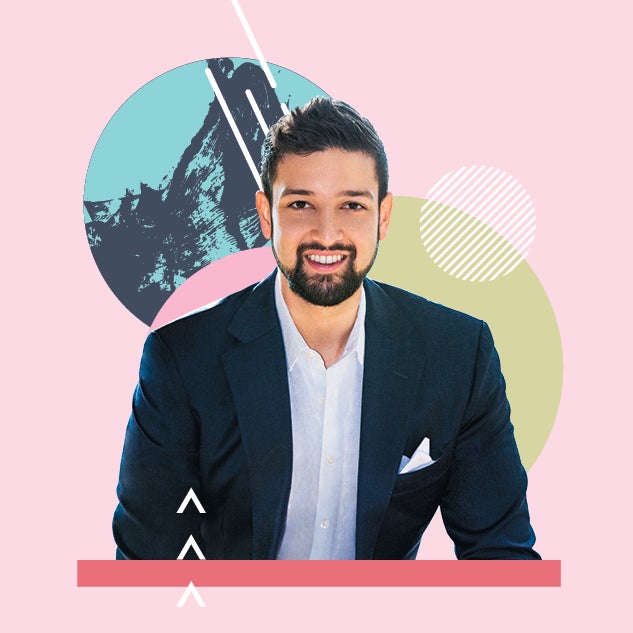 Ian Akash Morrison ’13
Ian Akash Morrison ’13
After graduating from Rice with a degree in electrical engineering and working for four years in finance, Ian Akash Morrison quit his job. “It was a bit of a leap of faith,” Morrison says. “I was afraid I was getting pigeonholed in one type of career.”
That singular leap led Morrison down a path of his own choosing. Three months into his work sabbatical, Morrison was asked by a friend to help launch a biotech company in Los Angeles. He had long been drawn to entrepreneurial risk-taking — “this idea that you can go out and start a business, and you can succeed or you can fail,” Morrison says.
In fact, it was at Rice that Morrison got his first taste of building something from the ground up. In 2012, along with fellow Will Ricers Vivas Kumar ’14 and Veronica Saron ’14, MBA student Darren Clifford ’13, and alumnus Bryan Hassin ’01, Morrison founded OwlSpark, a business accelerator that launches startups from idea to commercialization. The program is still going strong, having launched more than 50 startups that have raised more than $19 million in funding to date.
Morrison left his initial startup, but stayed in LA to found Optio Ventures, an advisory firm whose formal mission is “to empower anyone from any background to dream big, innovate boldly and fearlessly build transformational technologies to solve the world’s greatest problems.” Or, as Morrison explains, “We help startups raise money to do cool things.”
He’s also deepening his entrepreneurial credentials as the co-founder and CEO of Avesta76 Therapeutics, a company that grew out of research conducted by both his grandfather, Yogesh Awasthi, and his uncle, Sanjay Awasthi, an oncologist and scientist at Texas Tech University. Avesta76’s mission is to develop disruptive new treatments for cancer.
When not working two demanding jobs, Morrison is taking advantage of all that LA’s environs have to offer — hiking in the mountains and surfing or sailing in the ocean. He also stays active in the Rice alumni community and recently completed service on the Rice Engineering Alumni board. Three years after taking a risky leap of faith, Morrison has found his element.
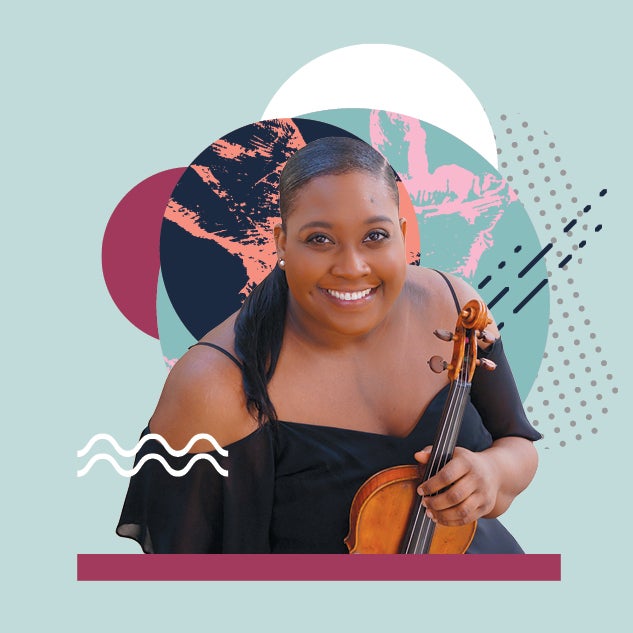 Chelsea Sharp ’15
Chelsea Sharp ’15
Violinist Chelsea Sharpe has performed at Carnegie Hall and the Hollywood Bowl and has been conducted by everyone from John Williams to Kanye West. As a fellow at the New World Symphony Orchestra in Miami, Sharpe is one of classical music’s rising stars — and she owes it all to her mom.
Sharpe’s mother, Tanya, had played the violin for one year in kindergarten before being forced to give it up because her family couldn’t afford private lessons. She was determined that her daughter would have a different experience. “She always wished she could continue,” Sharpe says. “Since I was her firstborn, she decided that I would kind of live out her dream.” Her mother sacrificed to ensure Sharpe had all the resources she needed to develop as a musician.
After high school, Sharpe had to choose between attending a music conservatory like Juilliard or a university-based music school. She ended up picking Rice’s Shepherd School of Music and studying under Kathleen Winkler. “I liked the fact that the Shepherd School had the intensity of a conservatory, but also opportunities to explore other subjects and meet nonmusic students.”
Sharpe’s mother, Tanya, had played the violin for one year in kindergarten before being forced to give it up because her family couldn’t afford private lessons. She was determined that her daughter would have a different experience. “She always wished she could continue,” Sharpe says.
While studying for her master’s degree at the University of Southern California’s Thornton School of Music, Sharpe also took advantage of opportunities to record television and film soundtracks. In 2017, she won a fellowship with the New World Symphony Orchestra, a training academy with a reputation for sending graduates to the world’s top orchestras; only 35 fellows are selected each year. One of Sharpe’s favorite parts of the fellowship is the chance to mentor young musicians in Miami public schools.
“When I talk to students, I always think about which of them might be future musicians,” Sharpe says. “After all, the only reason I started is because someone visited my mom’s school and taught her to play.”
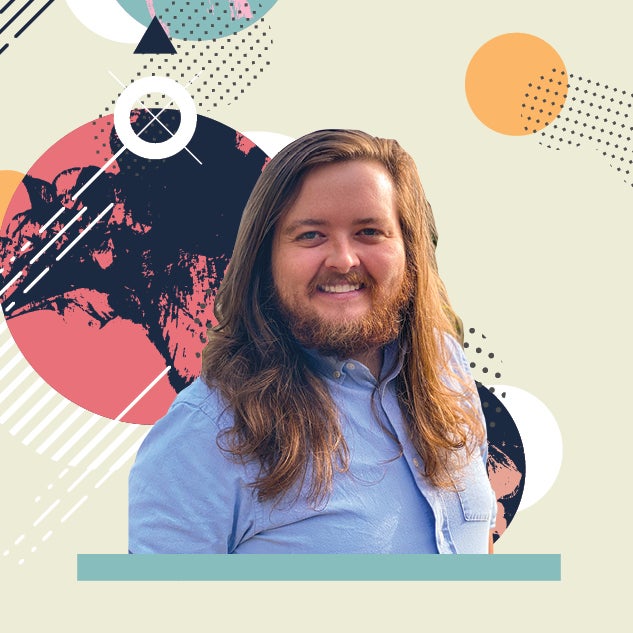 Eric Stone ’19
Eric Stone ’19
Eric Stone says he feels as busy as a one-armed paperhanger most days. He produces one to three daily news stories for the people of Ketchikan, Alaska, an island town with a population of about 8,000 — and a place he had never been to before reporting for duty to cover it. “It’s not as cold here as you might think,” he says. “We’re in the middle of the country’s largest national forest and part of the largest temperate rainforest in North America.”
Stone is a reporter for KRBD Community Radio, a four-person staff that covers every issue that is important to Ketchikan. “We’re the only public radio station for this part of Alaska,” he says. “I pitch my own stories, which is exciting and intimidating for someone who just graduated college.”
“While away from school, I spent a lot of time listening to public radio and podcasts, which sparked my interest in journalism,” he says. “I returned to Rice for the one-on-one campus experience, and the Thresher became my journalism school.”
While new to Alaska, Stone isn’t a stranger to new places. He initially pursued a degree in computational mathematics, but left Rice after a couple of years to explore and travel. He spent a few winters as a ski lift operator in Colorado and worked as a sailboat instructor in Galveston. “While away from school, I spent a lot of time listening to public radio and podcasts, which sparked my interest in journalism,” he says. “I returned to Rice for the one-on-one campus experience, and the Thresher became my journalism school.”
Stone served as the paper’s opinion editor and spent many late nights soaking up how the news industry worked. Today, he continues to gain on-the-job experience covering the pandemic in an isolated town with minimal medical resources. “Reporting on COVID-19 has been incredibly stressful, exhausting and rewarding,” he says. “The town has been reeling from the cancellation of the 2020 cruise ship season — the majority of its economic activity. My team and I are working to quickly inform everyone in Ketchikan as developments unfold.”
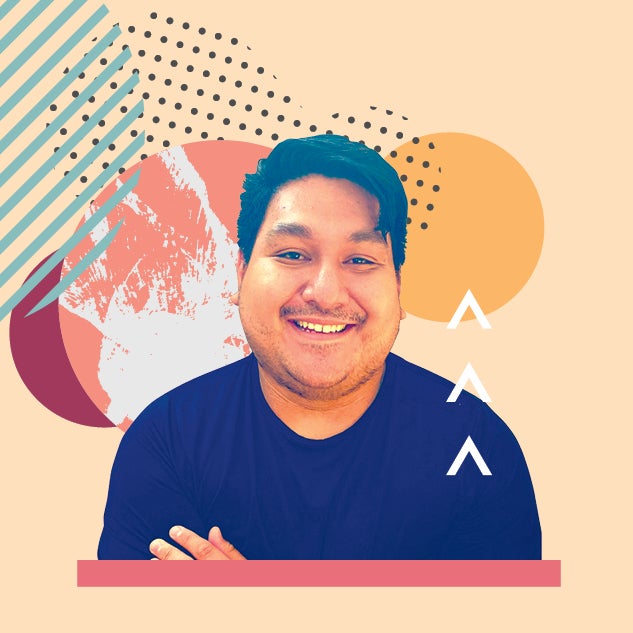 Estevan Delgado ’13
Estevan Delgado ’13
Estevan Delgado was just months away from graduation when he felt called to change his life’s course.
Though he had long planned to become a physician, Delgado began reconsidering what was truly driving his future hopes and dreams. The first-generation college student and son of motor factory workers decided to pivot from pursuing medical school to serving patients by focusing on health care quality and decisionmaking.
It was a step in the right direction, but still didn’t feel quite right. “I wanted to see what I could do to affect society so we’re not just caring about people at their deepest, darkest moments, but that we’re really caring about people from the time they enter society to the end,” he says.
Delgado decided he needed one more change, so he earned a master’s degree in public affairs and began a new career in public policy. Today, he serves as program manager for the Hispanic Impact Fund at the Austin Community Foundation, working to improve economic security and advancement across Central Texas.
“I wanted to see what I could do to affect society so we’re not just caring about people at their deepest, darkest moments, but that we’re really caring about people from the time they enter society to the end,” he says.
At its heart, his job is about listening and advocating for support — two skills he also uses as a member of the Association of Rice Alumni’s Board of Directors, where he strives to improve the Rice experience for everyone and uplift “stories of pivot” like his own.
Through a winding search for purpose, Delgado found a way to do exactly what he felt called to do in his last semester at Rice: inspire others, impact the community and do it all on his own path.
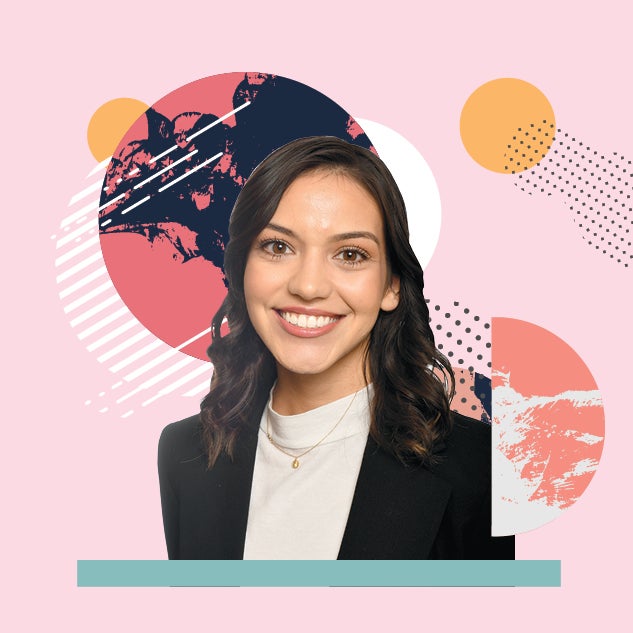 Cassy Gibson ’17
Cassy Gibson ’17
In tech, you hear phrases like ‘human design,’” Cassy Gibson says, “but so much of technology is actually exploiting human traits instead of supporting them.” Understanding user and patient needs is the basis of Gibson’s work. As a user experience (UX) designer in health care technology, she interviews patients and creates blueprints for digital systems that cater to the real people behind the screen, making sure the technology is accessible and inclusive for everyone who uses it.
Gibson started at Rice on the pre-med track. After completing her requirements, though, she switched to an English major, wanting to reinvigorate her studies with her love for literature and writing. When Rice piloted the medical humanities program, she was able to join the worlds of science and humanities and became one of the first two students to graduate with the minor.
In fact, Gibson first encountered UX design in Kirsten Ostherr’s Medical Media Arts Lab. She made her first app for Texas Children’s Hospital in the class and has been dedicated to unlocking the potential of humanism in tech ever since. Now based in Los Angeles, Gibson is navigating leadership and entrepreneurship on her own terms. In addition to her current work at Sidebench, a technology consultancy, she co-founded a women’s health startup and is a part of Vital Voices, an international initiative that brings together and empowers female leaders. She also has co-authored a chapter about acknowledging and resolving bias in artificial intelligence in a recently published book.
At home during the pandemic, she has been sending customized embroidery to Rice friends in exchange for donations to Black Lives Matter charities. Gibson explains, “What’s most important, whatever you’re doing, is that it’s done in a way that is human-centered and thoughtful. It feels urgent, now more than ever, to do things with social impact.”
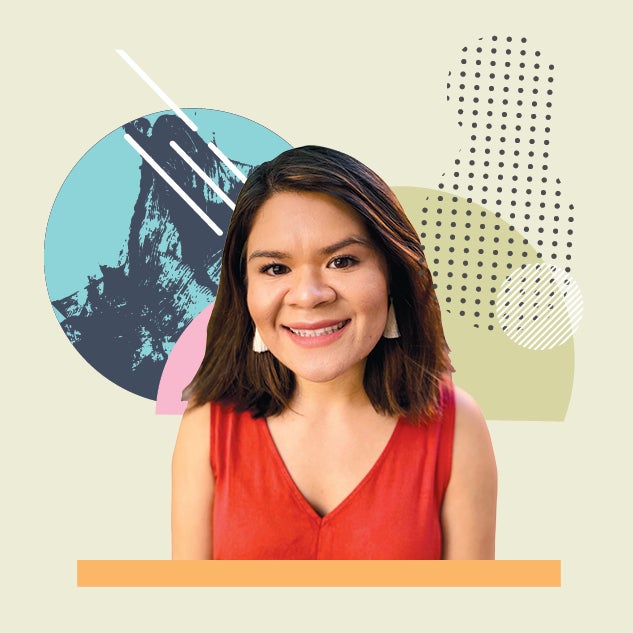 Angelica Razo ’16
Angelica Razo ’16
Angelica Razo wants to use her leadership skills to uplift the Latino community by ensuring that they participate fully in democracy. “We need to demand that our community be part of decisionmaking processes that impact us,” she says. “We are experts in our own experience; and, therefore, we should be at the forefront of creating policies, initiatives and practices that best fit the needs of our community.
The 26-year-old is deep into accomplishing her goal. Razo is the Texas state director of Mi Familia Vota, a nonprofit organization with the mission to build Latino political power through voter registration, voter engagement and leadership development. “My role is to create a state strategy that ultimately contributes to building Latino power and representation throughout Texas,” Razo explains. She focuses on fundraising, governmental relationships, establishing partners, media visibility and supporting team members as they implement strategies.
Her ambition is to rewrite the narrative of Latino voters. “As a community, we’ve been marked as the ‘sleeping giant,’ giving off the false assumption that our underrepresentation of civic participation can be boiled down to apathy and laziness,” Razo says.
Razo is a prime example of her belief that people can develop into leaders. Born in Mercedes, Texas, she grew up in Bentonville, Arkansas, where her parents worked in the landscaping business. An introvert, she forced herself to join clubs in high school because she was determined to attend an elite university.
Her ambition is to rewrite the narrative of Latino voters. “As a community, we’ve been marked as the ‘sleeping giant,’ giving off the false assumption that our underrepresentation of civic participation can be boiled down to apathy and laziness,” Razo says.
At Rice, she was elected vice president for HACER (Hispanic Association for Cultural Enrichment at Rice) and led the annual cultural show to resounding success by including more diverse participation, such as Brazilian students and the Latino graduate student groups. She has come to find out that leaders are ordinary people.
“We should empower each other to recognize this and take collective action,” she says. “My personal mantra is ‘Lift as you rise.’”
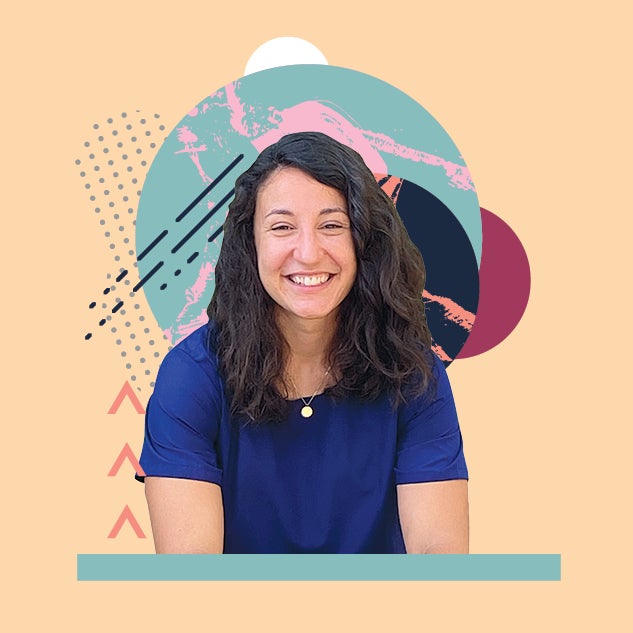 Lillian Seidel ’15
Lillian Seidel ’15
As a self-proclaimed “risk-averse art student,” Lillian Seidel didn’t care for sports. But after an ACL injury during Powderpuff football, she would soon become a runner.
“After five months of post-op therapy,” she says, “I decided if I was going to go through all of this physically and emotionally, I wanted to make it worth it. I decided to train for a sprint triathlon before I graduated.” Her first few workouts consisted of running to the Rice Farmers Market for snacks and walking back with her roommates. Thinking about that now makes Seidel laugh, but finishing her first race is what she remembers most.
“I burst into tears,” she says. “I realized I’m capable of so much more than I thought. From that moment, I was like, what else can I do?”
On the second anniversary of her ACL surgery, Seidel ran her first half-marathon. She followed it with a half-Ironman relay with her mom, which she’s done three times now, as well as running several 10K trail races. Between runs, she took a solo trip to Alaska’s Denali National Park and hiked up Emory Peak in Big Bend National Park.
While studying law at the University of Texas at Austin, she finished a 50K trail race. Now, with a law degree in hand, she’s working in child welfare in Texas as a government innovation fellow at the Harvard Kennedy School. Running and keeping active are integral parts of her life but are not always easy. “I have to be intentional in pushing myself out of my comfort zone.”
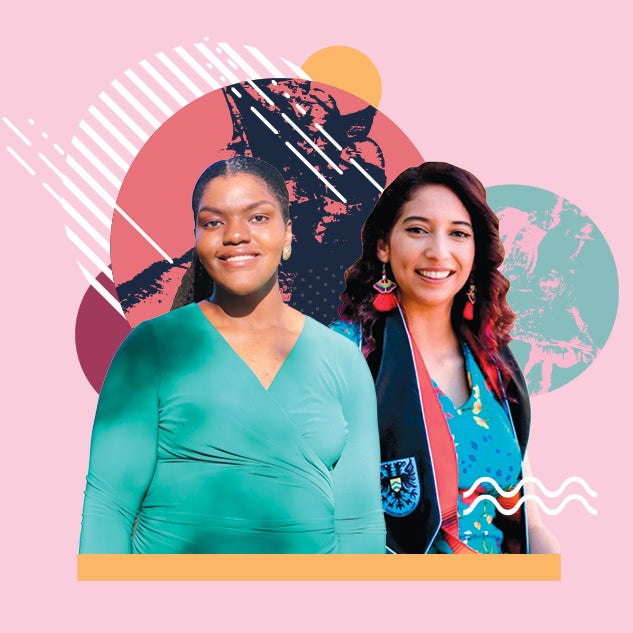 Summar McGee ’20 and Sonja Torres Rodriguez ’19
Summar McGee ’20 and Sonja Torres Rodriguez ’19
The murder of former Houston resident George Floyd in late May struck a chord with Summar McGee and Sonia Torres Rodríguez, as it did for so many people around the world.
Coming soon after the deaths of Ahmaud Arbery and Breonna Taylor, Floyd’s death drove home America’s deadly legacy of racism and gave new life to the Black Lives Matter movement. In solidarity, McGee, Torres Rodríguez and a group of current Rice students decided to start the group Rice for Black Life.
“I was asking myself, what can you tangibly contribute?” McGee explains. “And then I thought about what I had at my disposal, which was the Rice network. The network is huge, and you have access to almost unlimited resources.” She began talking with Torres Rodríguez, whom she had met through the George R. Brown Forensics Society, about starting a new organization dedicated to racial justice.
“We wanted to create a group that wasn’t just limited to current Rice students,” Torres Rodríguez says. “Campus groups are great, but you belong to them for four years and then you graduate.” Torres Rodríguez currently works as a researcher at the Urban Institute, while McGee is a first-year master’s student in American studies at Brown University. Rice for Black Life quickly attracted about 60 members, both current and former Owls. Other members in leadership roles include Black student activists Anu Ayeni ’21, Kendall Vining ’22, Magdah Omer ’22, Malaika Bergner ’23, Martina Faciane ’21, Michelle Fokam ’20, Morgan Seay ’22, Nia Howze ’22, Shifa Rahman ’22, Taylor Crain ’21 and Zahrah Butler ’23.
Coming soon after the deaths of Ahmaud Arbery and Breonna Taylor, Floyd’s death drove home America’s deadly legacy of racism and gave new life to the Black Lives Matter movement. In solidarity, McGee, Torres Rodríguez and a group of current Rice students decided to start the group Rice for Black Life.
Operating as a nonhierarchical collective, the group chose as its first action a one-day “contact-a-thon” to raise money for Houston racial justice groups. They set up a GoFundMe campaign with a target of $2,500 to be divided among the Texas Organizing Project, Indivisible Houston, Pure Justice and the Houston chapter of Black Lives Matter. Using their new Facebook page, the group recruited nearly 300 volunteers to send out personalized donation appeals. The campaign went live on the morning of May 31, and the team spent the day sending dozens of social media messages and emails to everyone they knew. By midnight, they had raised an astonishing $93,362 — more than 37 times their original goal — from over 2,200 people.
Rice for Black Life’s success inspired groups at Cornell, Wesleyan, Lehigh and other universities to launch similar fundraisers. McGee and Torres Rodríguez created an online toolkit with fundraising templates and advice on how to conduct a contact-a-thon.
To Torres Rodríguez, the fundraiser’s success demonstrated the reach of the Owl network. “This was just Rice kids dialing, texting, tweeting and Facebooking,” she says. “Sometimes you forget the power of getting together with people who share your cause.”
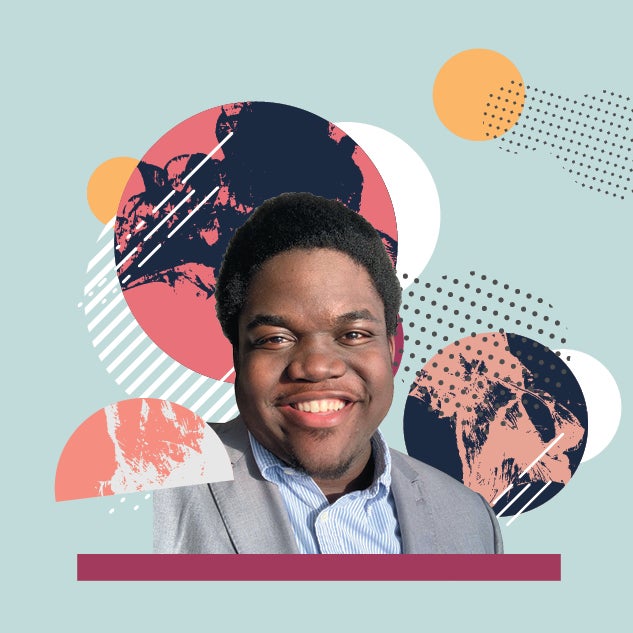 Justin Onwenu ’18
Justin Onwenu ’18
When the wail of sirens signals disaster, most people run for cover. But for Justin Onwenu, the sound of an alarm means it’s time to roll up his sleeves and get to work. As the 2017–2018 Rice Student Association president, Onwenu was one of the first students called upon when Hurricane Harvey devastated Houston. The crisis response that followed changed his outlook on life.
“I remember calling my mom so overwhelmed by the gravity of everything. … That was a turning point. I realized I wasn’t going to medical school. The environment people live in, the crises people face and their access to good jobs, nutritious food, clean air and adequate housing all have a significant impact on their health before they step foot in a doctor’s office,” he says.
After graduating, Onwenu returned to Michigan and began working for the Sierra Club in Detroit as a community organizer focused on environmental justice issues. When a new crisis hits, his job takes a turn. Some weeks, he pivots from rallying with citizens outside of state agencies to helping draft city ordinances to protect drinking water. But the goal of each day is the same — to make sure people have a healthy environment to live in.
Onwenu has accomplished a lot in a short time, from working with residents to secure air filtration systems in schools to serving as the youngest appointee to the Michigan Advisory Council for Environmental Justice, the first convened in state history. He’s committed to bringing about change by building coalitions and responding to community needs. “There’s this perception that there’s only one solution or one way to do things. Being active civically doesn’t just mean going to protests or sharing posts on Facebook. … We need people fighting for justice as researchers, teachers, lawyers, artists — we need everybody.”
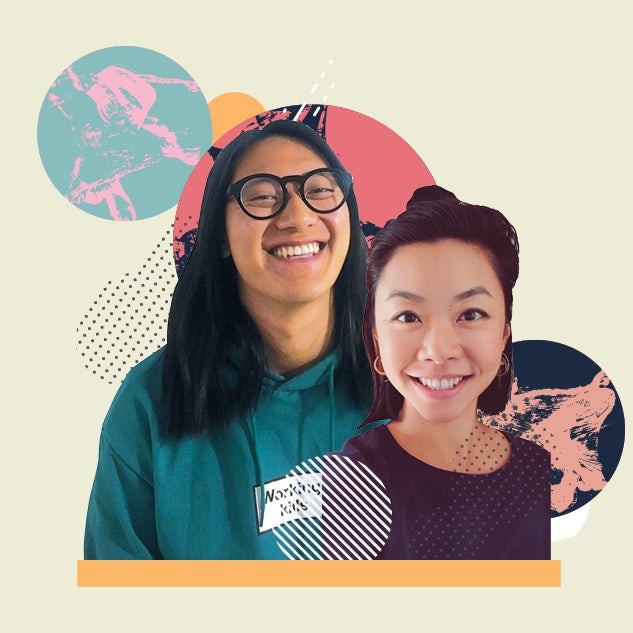 Dolly Li ’12 and Joey Yang ’12
Dolly Li ’12 and Joey Yang ’12
Dolly Li grew up in New York City listening to the local Cantonese-language radio station, 1480 AM, with her family. The station carried traffic and weather reports and played music, but also covered stories of particular interest to the Asian American community, such as the 2003 SARS outbreak in Hong Kong. Last December, Li was listening to the station with her mother when she came up with the idea of starting an English-language version.
“I loved the range of information that was available, and I realized that there wasn’t anything else quite like that,” says Li, who now lives in Brooklyn. For technical help, she reached out to her friend, Joey Yang, an Oakland-based web designer whom she met at Rice. Yang, who had been a DJ at KTRU, told Li that buying a terrestrial broadcast license would cost several hundred thousand dollars, but that they could start an internet radio station with just a few hundred dollars of equipment.
In early 2020, they launched “Plum Radio,” a show that airs Sundays at 4 p.m. Eastern time on Instagram Live and is released as a podcast the following Wednesday. Hosted by Li and Yang, the approximately hourlong show includes news, commentary and interviews.
Yang’s time at KTRU and Li’s experience as a video journalist — she’s reported for Al Jazeera and the South China Morning Post — make them naturals. Both approach the news from an unapologetically leftist viewpoint, and neither is afraid to take a critical cultural stance.
Last December, Li was listening to the station with her mother when she came up with the idea of starting an English-language version. … “I loved the range of information that was available, and I realized that there wasn’t anything else quite like that.”
On the first episode, Li and Yang decried what they call “boba liberalism.” Named after the bubble tea houses ubiquitous in Asian American communities, the term refers to a shallow version of cultural pride focused on food rather than politics. Just because Asian food and culture are increasingly popular, Yang argues, doesn’t mean that Asian Americans have achieved full equality.
Li and Yang frequently bring up the history of anti-Asian discrimination in America, dating back to the Chinese Exclusion Act of 1882, as a way to encourage solidarity between the Asian American and African American communities. George Floyd’s murder in late May became a focus of Li and Yang’s weekly episodes. Li has been reporting on the Black Lives Matter movement since 2014. “The more you know about the history of the civil rights movement [and] about Black American history, the more you realize that your own immigration history is intertwined with that movement,” she says.
Li and Yang want to use their radio show to educate their audience and themselves about that history. “To understand how we got to where we are today requires us to dig in and relearn some things,” Yang says.
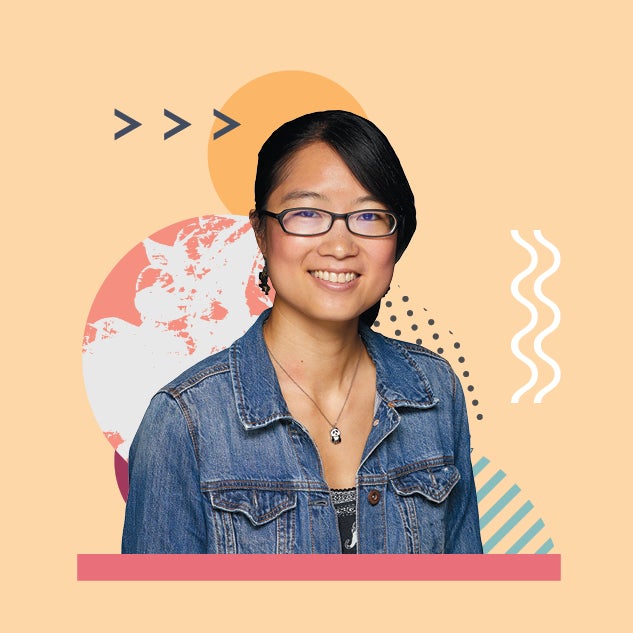 Daisy Chung ’14
Daisy Chung ’14
Daisy Chung has never been one to limit her options. She transferred to Rice from her home in Taiwan for the opportunity to study both of her passions — biological sciences and visual art. “I was the only student at the time pursuing both majors,” Chung says. “Once I realized I wanted to become a science illustrator, I essentially invented my own path and designed an independent study course under the guidance of [Rice associate professor of painting and drawing] Natasha Bowdoin, my mentor.”
After graduation, Chung considered entering academia but didn’t want to restrict herself to a specialized field of science. With a desire to communicate academic science to a broad audience, she enrolled in California State University’s science illustration graduate program, the only of its kind in the country. “Through my program’s internship component, I began working with Scientific American, which sparked my interest in visual journalism,” she says. Chung then joined National Geographic’s graphics team in Washington, D.C.
“It’s hard to explain science, but getting your audience to care about the science is even harder.”
“Each magazine story was a monthslong collaborative project between writers, photographers, designers and graphic researchers,” she explains. “The researchers helped me become a mini-expert in specialized topics so I could act as a communication liaison for our audience.”
Chung says her greatest challenge in creating visual stories that explain complicated scientific topics is getting the audience to engage. “Once you’re too removed from your audience, you forget why the visuals don’t work,” she says. “It’s hard to explain science, but getting your audience to care about the science is even harder.”
Today, Chung works part time as the creative director for wikiHow, an educational website with how-to guides, and expands on her freelance career, where she’s able to dream up her own story ideas, such as community efforts to save Hawaii’s Ōhia tree from a rapidly spreading fungal disease. Her recent work has also brought her back to Rice as a visual communication collaborator for Rice Magazine and the Carbon Hub.
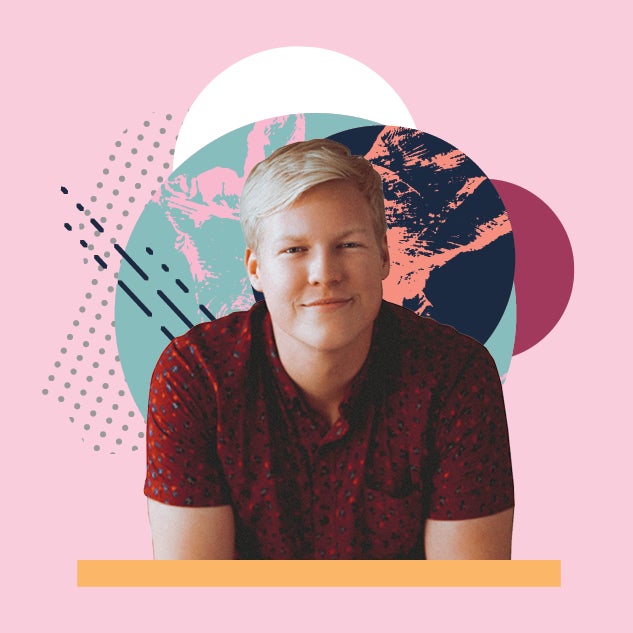 Nathan Bonnes ’15
Nathan Bonnes ’15
A self-taught musician, Nathan Bonnes has cultivated a career that combines his passion for writing, performing and producing music. Bonnes’ foray into the Texas music scene began in high school, playing at local venues in Corpus Christi, his hometown. At Rice, he found there wasn’t a place where musicians could regularly perform; so in 2012, Bonnes partnered with Rice Coffeehouse and headlined the first Coffeehouse Goes Acoustic event. The open mic nights grew in popularity with other student performers and became appropriately dubbed “Espresso Yourself.” With regular Wednesday night gigs, Bonnes focused on songwriting and collaborating with other local musicians.
Following graduation, Bonnes pursued a full-time career in folk-country music, releasing his first full-length album in 2016. He toured around Texas, playing at places like the Floore’s Country Store and Gruene Hall, legendary honky-tonks that have hosted the likes of Willie Nelson, Lyle Lovett and George Strait. On Sundays, he’d return to Houston, where he served as a part-time worship leader at The Story Houston. After two years on the road and hundreds of shows, the church offered him a full-time position. “I had to weigh the benefits of this stable job with the idea of trying to develop a career under my own name as a solo, secular musician,” Bonnes says.
He toured around Texas, playing at places like the Floore’s Country Store and Gruene Hall, legendary honky-tonks that have hosted the likes of Willie Nelson, Lyle Lovett and George Strait.
Once his decision was made, Bonnes never missed a beat. “Every week is a new, creative, fun mess,” he says. “We create services, podcasts and original music.” And Bonnes continues to enlist the help of friends he made at Rice. “There are so many talented people at Rice whom I still draw from when I need help on a project,” he says.
While Bonnes misses aspects of the country music life, he admits between time with his wife, Gretchen Oertli ’15, whom he married in 2019 at the Rice Chapel, and his responsibilities as a worship leader, “the future is looking great!”
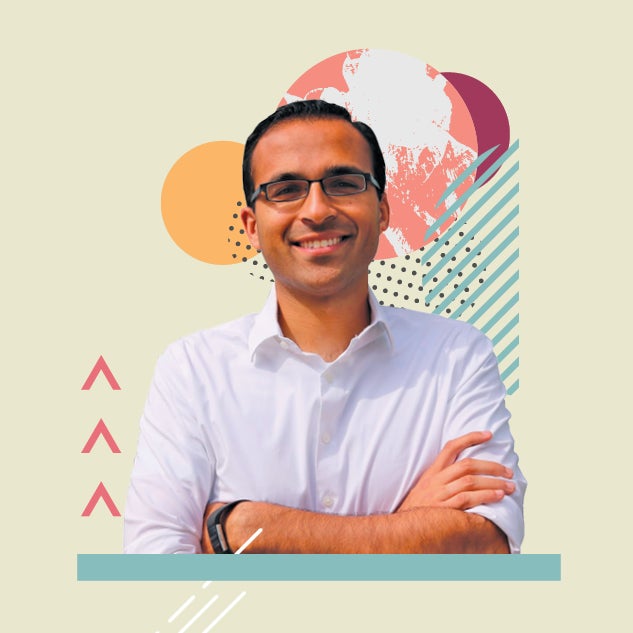 Raj Salhotra ’13
Raj Salhotra ’13
When you speak with Raj Salhotra about his mission to improve opportunities for under-resourced students, your first response is to ask where to sign up to help. The focus of his enthusiasm is Momentum Education, a nonprofit that provides mentorship, scholarship funding, and college and career counseling to high school and college students in the Houston area.
After graduating from Rice, Salhotra joined Teach For America as a high school math teacher and also taught at YES Prep Southwest. This experience drove home the dearth of opportunities for first-generation and low-income kids and motivated him to gain a greater understanding of law and policy. In response, he founded two educational nonprofits: One Jump, which connected high school students to summer programs, and SWAG (Students With Ambition Go) to College, a mentoring program. He also attended Harvard Law School, where he focused on the intersection of law and policy.
“The decision to run was driven by a desire to use policy to address the many issues I saw affecting my students outside of the classroom,” Salhotra says. “I was thinking about housing, transportation and the lack of opportunities to attend after-school or summer programs.”
After law school, he returned to Houston, deferred a job with Baker Botts and launched a campaign for city council. “The decision to run was driven by a desire to use policy to address the many issues I saw affecting my students outside of the classroom,” Salhotra says. “I was thinking about housing, transportation and the lack of opportunities to attend after-school or summer programs.”
Salhotra lost the city council race, but he learned that his north star was leveling the playing field for students from underserved backgrounds. Instead of returning to Baker Botts, he rolled both One Jump and SWAG to College into the nonprofit Momentum Education.
“I’ve seen the power of social capital, of connections, of mentors and of access to resources,” Salhotra explains. “I fundamentally believe that we have an obligation to level the playing field and expand opportunities for all.”
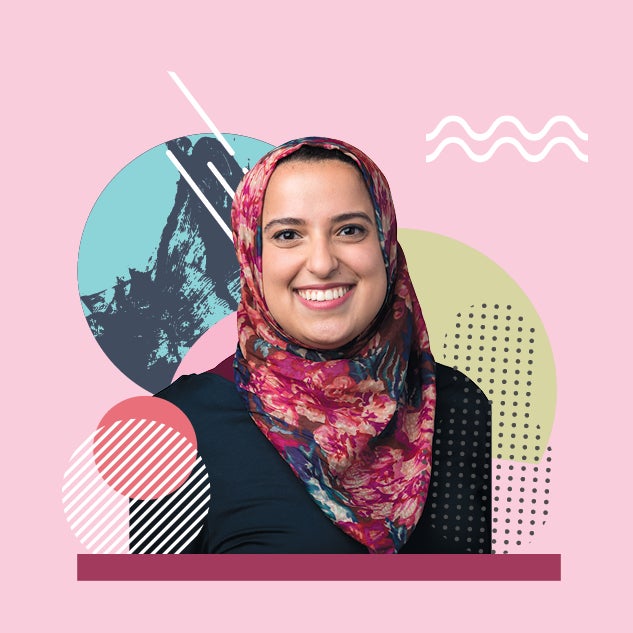 Doha Aboul-Fotouh ’15
Doha Aboul-Fotouh ’15
What is most striking about Doha Aboul-Fotouh is her profound sense of gratitude. When asked about her experiences as an English major, her studies at Baylor College of Medicine, her pediatric residency, her poetry or her family, she always starts out with, “I’m so very grateful.” It is this sense of thoughtful reflection that permeates her writing as well as her practice of medicine.
It seems natural that Aboul-Fotouh would choose a medical career. Her mother and two older sisters are all physicians. But she also loved the humanities, particularly writing poetry, and it was actually her sensibilities as a writer that moved her toward the body and pediatrics. “Medicine is much like English — they are both about story-making,” Aboul-Fotouh explains. “Everything has a beginning, middle and end. Much of medicine is putting together that story, proving that something happened or could happen.”
Even through the rigors of medical school and residency, Aboul-Fotouh has continued writing poetry, what she describes as “putting parts together.” She attends a monthly poetry workshop and considers it “one of the absolute best things I have going for me.” In 2019, she published a long poem in the literary journal RHINO Poetry. The poem, titled “Begetting,” contemplates the loss of her father.
In fact, the death of Aboul-Fotouh’s father was instrumental in solidifying her approach to practicing medicine. She was dissecting a cadaver in her first year of medical school when she realized that the body presented with liver disease; her father had succumbed to liver cancer just two years before. “That recognition, while it brought about its own grief, also taught me that every body is a loved body,” she says. “This is something I recognize and verbalize often in pediatrics. I spend a lot of time telling parents, ‘I know your child is precious to you.’ My work is about honoring the loved body as well as those who care about them.”
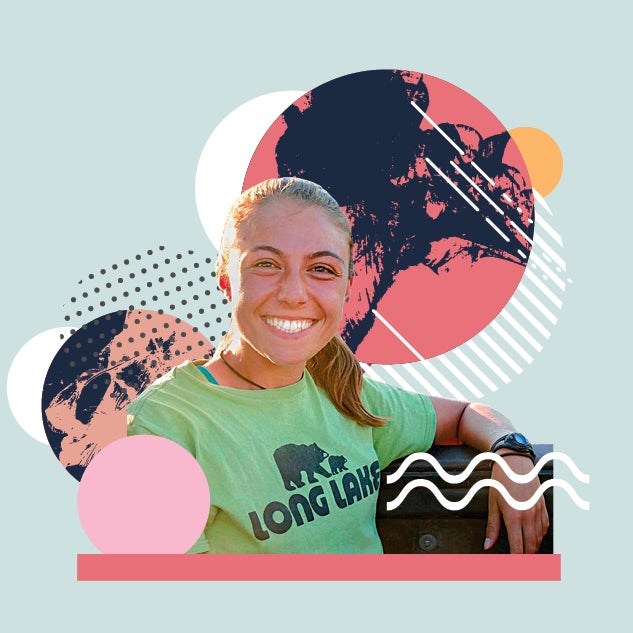 Lucrecia Aguilar ’18
Lucrecia Aguilar ’18
While visiting her extended family in Guatemala, 11-year-old Lucrecia Aguilar walked through the rainforest with a heightened sense of awareness. With electricity in the air, she knew without a doubt there were jaguars near.
Aguilar vividly recalls that moment in the middle of the jungle and how it furthered her childhood desire to pursue wildlife conservation. As a Rice student, she studied pumas in New Mexico, jaguars in Belize and encountered her first big cat in the Tanzanian wild.
“Being in spaces with big cats just has this energy. When I’m in that place, … it’s the best part of what I do. … But conservation can be sexist and racist and not done for the right reasons. The destruction of nature is so much worse than what you can imagine when reading a textbook,” she says. “There are more tigers in captivity in the U.S. than there are in the wild all over the world.”
As a Rice student, she studied pumas in New Mexico, jaguars in Belize and encountered her first big cat in the Tanzanian wild.
In her senior year, Aguilar won a coveted Thomas J. Watson Fellowship. After graduation, she traveled to 17 countries to explore big cat conservation and human-wildlife coexistence. With big cats on the brink of extinction, Aguilar is determined to find solutions for these endangered species. She’s now pursuing a Ph.D. in conservation ecology at Harvard University. Her interest in data analysis and her fieldwork experiences have led her to also look at underrepresented minorities and how they experience conservation.
While Aguilar continues her studies and anxiously waits to get back in the field when it’s safe to travel again, she has also been answering questions from friends about Netflix’s hit documentary, “Tiger King.” With the show in the spotlight, Aguilar hopes people will talk about the future and how big cats impact key parts of our ecosystem.
“We are running out of time,” she says.
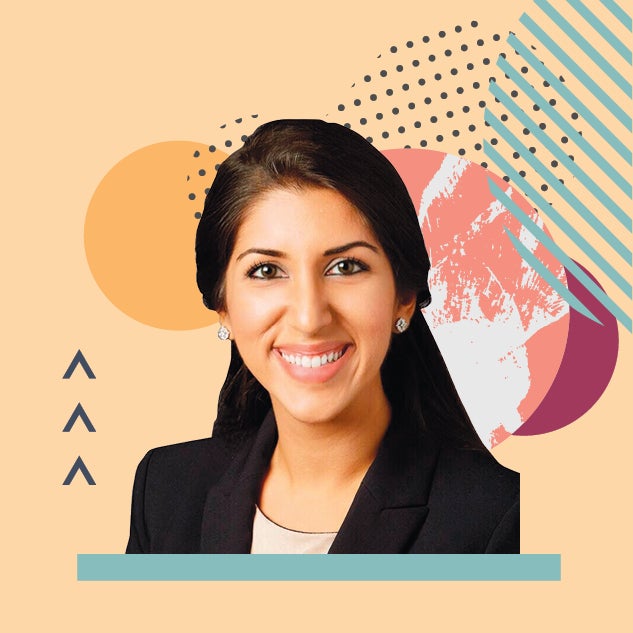 Trishna Narula ’11
Trishna Narula ’11
Sugar Land native Trishna Narula is back in Houston after spending the better part of a decade away. An only child of two doctors, Narula grew up playing with her “Sesame Street” stethoscope, shadowing physicians at local clinics and volunteering in the Texas Medical Center. Learning about human behavior and its effect on health in Rice professor Mikki Hebl’s lab cemented her interest in the intersection of psychology and health.
An only child of two doctors, Narula grew up playing with her “Sesame Street” stethoscope, shadowing physicians at local clinics and volunteering in the Texas Medical Center.
After two college summers working with children in India, Narula found her interest pivoting to public health. She graduated a year early from Rice, where she met fellow Bollywood fan and now-husband Jaimeet Gulati ’10 through her involvement with the South Asian Society. Then, while finishing her master’s degree in public health at Emory and internship at the CDC, she applied to attend medical school at Stanford, seeking one-on-one patient interaction and medical skills to inform her public health knowledge.
During medical school, Narula represented fellow medical students as one of the first minority women elected speaker of the American Medical Association (AMA) Medical Student Section. From Chicago to Washington, D.C., to Honolulu to Dallas, Narula attended 17 AMA meetings and co-authored 18 resolutions. One notable bill for which she advocated made California the fifth state in the country to adopt the End of Life Option Act, allowing terminally ill patients to access physician-assisted aid-in-dying.
Clearly able to make waves in public policy, Narula was hesitant to go down what she describes as a “tunnel-vision path” to practicing clinical medicine without first exploring how to balance a career that included both seeing patients and advocating for healthy communities. When a Rice professor connected her to Karen Tseng, a lawyer leading the brand-new population health department at Harris Health, Narula found her calling.
Combining her training in psychology, public health and medicine, Narula has helped lead comprehensive, preventative programming at Harris Health, where 90% of patients are uninsured or underinsured. The first project she worked on was a “Food Farmacy.” High-risk patients receive “food prescriptions” to be redeemed for 30 pounds of fresh produce every two weeks, coupled with support from staff nutritionists and trained professionals to help navigate federal food benefits. Her work is in health care reform, transforming clinics into community-centered hubs that focus on social determinants rather than funneling resources into treating diseases and complications that are largely preventable.
The first project she worked on was a “Food Farmacy.” High-risk patients receive “food prescriptions” to be redeemed for 30 pounds of fresh produce every two weeks, coupled with support from staff nutritionists and trained professionals to help navigate federal food benefits.
Next up for Narula is applying to a psychiatry residency to continue to advocate for patients in the clinical and social worlds. As she reflects on her path, she realizes that she had spent so many years chasing “global health” in cities and programs far away when there were so many inequalities right here, in her own backyard.
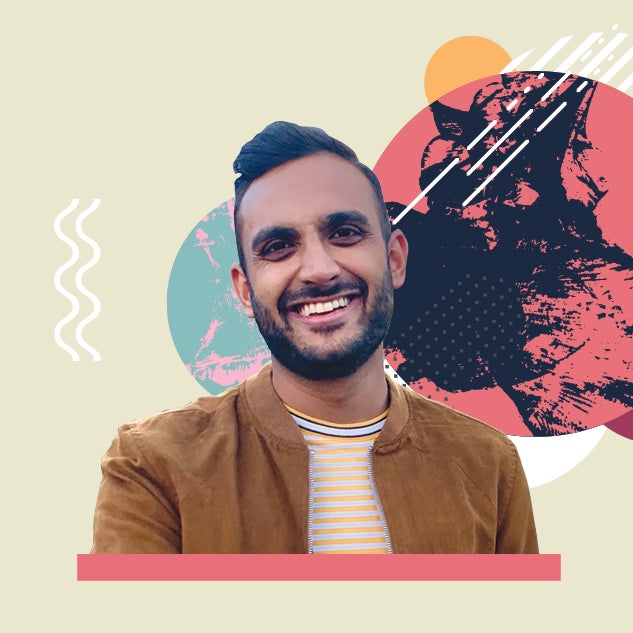 Shaan Patel ’14
Shaan Patel ’14
Shaan Patel is only 28 years old, but his resume reads like one that belongs to a seasoned professional — he’s an architectural designer, owns a design and construction firm, is a cast member of a reality television show, writes a blog and belongs to two nonprofit boards that advocate for better living conditions in Miami-Dade County.
After earning his Bachelor of Arts in 2014 and Bachelor of Architecture in 2016, Patel returned to his hometown of Miami and started Tanin Group, a design, construction and real estate firm that builds residential townhomes in Central Miami and luxury waterfront homes in St. Petersburg, Florida. “What sets us apart is being able to design, construct and sell in-house,” he says. “When you see all the pieces, you end up with a better product.”
Patel decided he wanted to be an architect when he was 10 years old. Playing with Legos and putting things together, he discovered his calling for a career in design. While studying architecture at Rice, he realized that he loved project management. “Making decisions, putting the project together and making sure it gets done was just as much fun for me as the design portion,” he says.
What he’s also found fun is being a cast member of the reality TV show “Family Karma,” which is produced and aired by Bravo. The show follows a group of Indian American families who grew up together in Miami. It’s filmed everywhere the families go — restaurants, construction sites and homes. “I was balancing the filming of a show while meeting my girlfriend and trying to make sure that it did not interfere with someone I really liked,” Patel says. “This was never something I planned on, but I really enjoyed being able to tell my story and be on this crazy ride.”
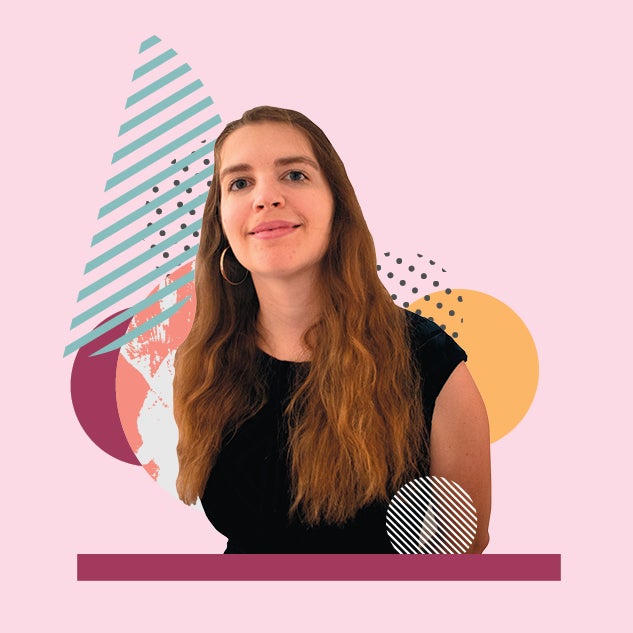 Kim Rightor ’16
Kim Rightor ’16
In March, Kim Rightor was a year and a half into her Peace Corps stint when she and more than 7,000 other volunteers were evacuated due to COVID-19 — the first global evacuation in the organization’s history. “It was definitely dramatic,” Rightor says. “Once I received the email, I had 12 hours to pack up, say my goodbyes and evacuate.”
While stationed in Dar Ould Zidouh, a Moroccan village of about 40,000 people, Rightor focused on improving her Arabic language skills and building community relationships. “I started three girls soccer teams, taught English at a women’s sewing cooperative, led yoga classes at the rec center and created a library at the high school with local teachers,” she says. “A lot of my time was spent making sure the programs were established in a culturally sensitive way. For example, the girls soccer teams couldn’t have any male involvement.”
Rightor says she dedicated the first three months of her assignment to making connections and building trust in the community. “I was the only volunteer in my town, and I didn’t know the language very well,” she explains. She conducted a community needs assessment to understand which programs to prioritize. “English was a high priority, while women’s health was highlighted as something I shouldn’t touch,” she says. “I think serving in the Peace Corps gave me incredible entrepreneurial experience because you aren’t given marching orders. You’re simply placed in a community and tasked with finding ways to help them.”
Back on U.S. soil with an advanced midlanguage ranking in Arabic and countless learning experiences under her belt, Rightor is focused on her next step — applying to business school, pursuing entrepreneurship and one day launching a startup related to female empowerment.
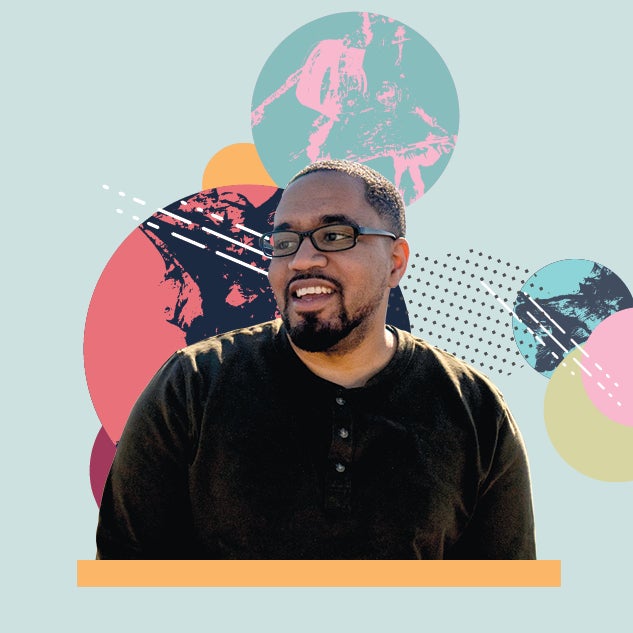 Cortlan Wickliff ’10
Cortlan Wickliff ’10
Cortlan Wickliff’s book, “Young and Driven: Overdrive,” published in 2017, is a blueprint of exercises and lessons learned on how to succeed in life. And he should know. At a very early age, Wickliff was fascinated with electronics and eager to invent medical devices. But the untimely death of his father from a heart attack changed Wickliff’s focus. He realized that instead of designing the equipment, he needed to find innovative ways to reduce the time it takes to get technology to market by efficiently navigating legal and technical hurdles. Thus, at 10 years old, his three-degree plan was hatched.
At 15, Wickliff started his college career, finishing his required high school classes and earning 70-plus college credits that he used to apply toward his bioengineering degree at Rice. Graduating in 2010 with a bachelor’s degree, Wickliff became the nation’s youngest engineer at 19 — earning the first of many mortarboards — and headed to the East Coast.
Leaving Texas for the first extended time in his life, Wickliff entered Harvard Law School. This time, acclimating to college life was more challenging. “I strengthened my abilities to advocate for myself and others,” he says, “and [gained] the tools to argue policy.” When Wickliff graduated in 2013, he became one of the youngest African Americans to graduate from the school. After passing the state bar, he became the youngest attorney in Texas.
At 15, Wickliff started his college career, finishing his required high school classes and earning 70-plus college credits that he used to apply toward his bioengineering degree at Rice. Graduating in 2010 with a bachelor’s degree, Wickliff became the nation’s youngest engineer at 19 — earning the first of many mortarboards — and headed to the East Coast.
Still intent on melding business, law and technology, Wickliff went on to Texas A&M, where he completed a Ph.D. in engineering. He returned to Rice in 2018, not as a student but as associate vice provost for academic affairs and strategic initiatives. “Rice gives me so many opportunities to positively impact so many people, and I can’t imagine a job that could give me that same access and ability,” he says.
In 2019, the second edition of Wickliff’s book was released. So in October, to motivate people to pursue their dreams and believe in themselves, he embarked on a self-funded speaking tour, Be Driven to Succeed, a 25-city, 4,500-plus-mile endeavor in which he spoke to over 40,000 students in high schools, colleges and community events across the state. Beginning in Beaumont, Wickliff spent his vacation on the road, giving a total of 52 presentations.
Wickliff recounts hearing about a student who attended a youth engineering camp that he organized and spoke at. “He had recently been orphaned and was having issues in school,” says Wickliff. “He soon after turned his life around and credited what I said at the conference for his motivation and change of heart. So, anytime I can motivate someone to improve their lives or pursue their dreams,” Wickliff says, “is a proud moment for me.”
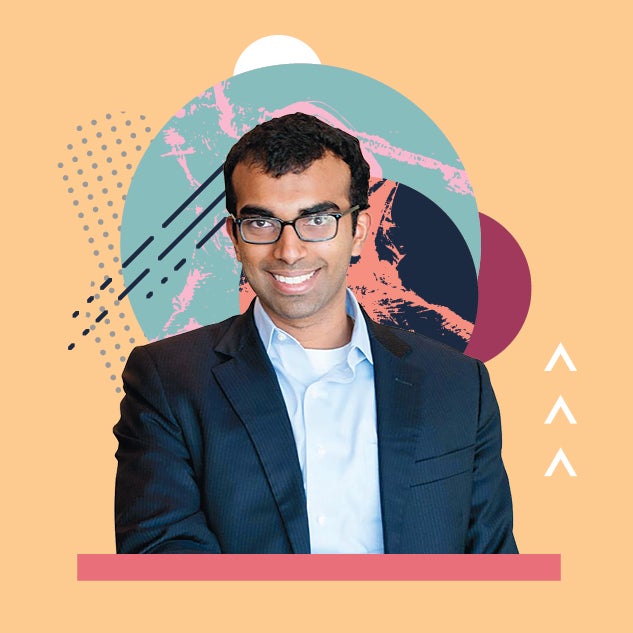 Vivas Kumar ’14
Vivas Kumar ’14
As an electrical engineering major, Vivas Kumar learned a lot about batteries and energy storage for electricity. This knowledge came in handy after graduation, when he joined Tesla’s battery materials team in the Bay Area. “I like to think of Tesla as a battery and software company that happens to make cars,” Kumar says. “Electric cars are on the road today because of the decades of electrical engineering innovation on battery technology.”
At Tesla, Kumar became a part of that innovation. “It was an amazing career opportunity to be at the forefront of the electric and autonomous cars trend — the biggest change to happen to the transportation industry in the 130 years that we’ve been making cars in the United States,” he says. “I managed a multibillion-dollar portfolio sourcing the metals needed to make batteries.”
Kumar’s role took him to 25 countries in three years. “The personal and professional development that I was able to seize early on turbocharged my career,” he explains. “It was fascinating to work within Tesla’s business model because it will likely redefine the future of the automotive sector.”
Last year, Kumar left Tesla to pursue his MBA at Stanford University and work part time for Benchmark Mineral Intelligence, a London-based specialist information provider for the lithium ion battery to electric vehicle supply chain.
“It was fascinating to work within Tesla’s business model because it will likely redefine the future of the automotive sector.”
“I wanted to stay involved in the industry while I went back to school, and this experience has solidified what I’m looking for in my long-term career,” Kumar says. “I want to do something that marries engineering and business, involves a lot of international travel, allows me to work with diverse people and is grounded in cutting-edge technologies.”
